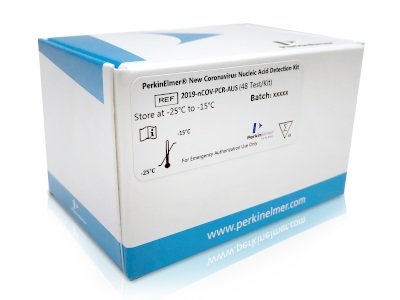
Photo Credit: PerkinElmer
PerkinElmer, Inc. announced on 29 Oct 2020 that the U.S. Food and Drug Administration (FDA) has issued Emergency Use Authorization (EUA) to allow sample pooling with PerkinElmer® New Coronavirus Nucleic Acid Detection Kit to increase the number of individuals who can be tested without increasing resources. This validation of batch testing using the industry’s most sensitive assay to date according to the FDA Reference Panel leverages its proven ability to detect low amounts of viral genetic material.
Laboratories certified under the Clinical Laboratory Improvement Amendments (CLIA) can now use PerkinElmer’s real-time RT-PCR in vitro diagnostic assay for COVID-19 to pool multiple samples together using the resources needed for a single test. If a pooled test is negative, all the individual samples are considered negative. If the pooled test is positive, each of the individual samples in that pool should be tested again separately to determine which of the samples are positive. For sample pooling to be effective, screening using a highly sensitive test is integral.
From comparative data released by the FDA, the PerkinElmer New Coronavirus Nucleic Acid Detection Kit has the lowest Limit of Detection (LoD) among the authorized COVID-19 molecular diagnostic tests reported, deeming it the most sensitive assay that can detect 3-fold less viral material in samples compared to the assay in second place, and over 90-fold times less viral material in samples compared to the industry average.
Masoud Toloue, Ph.D., Vice President and General Manager, Diagnostics, PerkinElmer, said, “The ability to pool samples using a highly sensitive RT-PCR test offers diagnostic labs an efficient and accurate way to increase testing capacity.”
PerkinElmer has been on the front lines of improving COVID-19 test turnaround times enabled by increasing production capacity of viral RNA extraction, RT-PCR tests and live streaming availability status to meet evolving public health needs.




